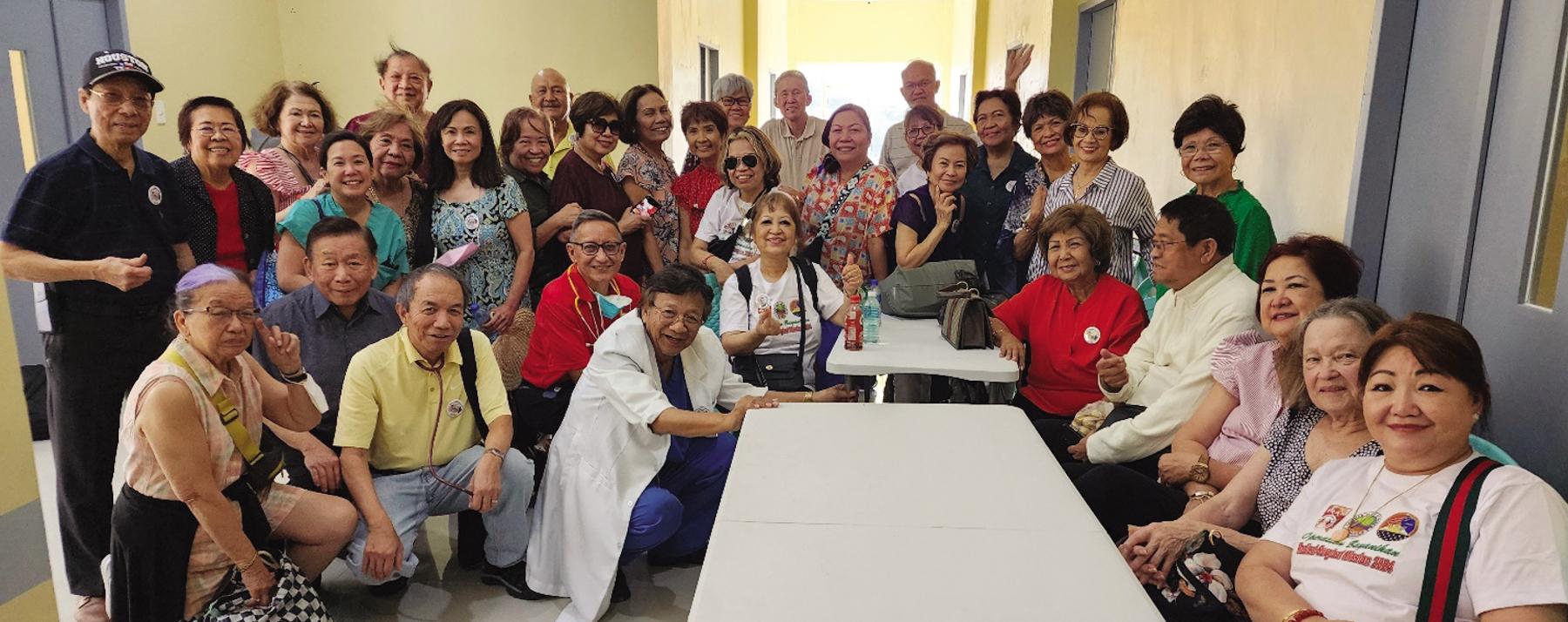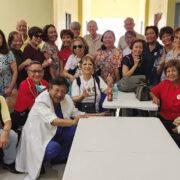
MEDICAL missions to various remote towns in the Philippines are now a regular ritual for many patriotic Filipino American organizations in the United States. Desirous of helping their underprivileged fellowmen and obviously heeding the call from within their own hearts, these dedicated and benevolent countrymen of ours spend time, effort, personal money and some risk to their own health and safety to journey across the oceans to offer their medical expertise and medicines for free to our people.
Balikbayan volunteers, mostly seniors, are quite aware of the fact that theirs is only a small token of what they all want to provide our underserved fellow Filipinos in these villages and rural areas. What impresses me most is their tenacity, sincerity, sacrifices, and perseverance, in spite of all odds, logistics, funding, their personal safety, etc. As could be expected, there are heartless and unsavory comments from some inconsiderate sectors who are just standing by and watching the suffering neglected people, while the missionaries labor and sweat.
The Philippine-American Association of North Carolina (PAANC) in Raleigh, North Carolina, U.S.A., is an example of benevolence and service at its best among the medical missions. Founded in 1988, the PAANC has evolved quietly and without fanfare into a respected and proven humanitarian group, known as Carolina Medical Mission (CMM). Among the stalwart members of CMM who provided significant leadership to the project was the late Fred T. Ng, M.D., his wife, Anita, and Drs. Arturo de Leon and his wife, Rosemary, also of Raleigh. CMM had its latest mission in Pinamalayan, Mindoro, last January 2024.
The others are the Philippine American Association of Nevada, headed by Daniel C. Fabito, MD, FACS, FPCS; the Philippine American Charity Foundation, Luz Micabalo, RN, president; supported by the Filipino United Network-USA Foundation (FUN8888.com) chaired by Philip S. Chua, MD, FACS, FPCS; and many other groups (medical alumni from various universities, specialty societies, and professional associations, and countless local Philippine physicians) provide general surgery, cataract surgery, medical and pediatric clinics with free medications, and surgical care to thousands of needy people each year. Locally, in Quezon City, the Hospital on Wheels headed by Jim Sanchez, MD, travels around the country providing free minor surgical care.
Major surgeries during these medical missions include hernia repair, thyroidectomy, harelip repair, lumps and bumps, circumcision, hysterectomy, gallbladder surgery, mastectomy, dental surgery and eye surgery. Intra-ocular lenses are donated by Alcon, U.S.A., and surgical packs by SEE International of Santa Barbara, California. Sometimes, when surgery lasts late in the evening, ordinary flashlights are options and serve to illuminate the operating field for the surgeons when brownout or power failure confronts the team. It seems nothing can stop them from accomplishing their objectives.
The volunteers pay for their own airfare from the United States to their target countries and other expenses on every mission, on average about $5,000 per person. Practically all of them are joined by their spouses. They also contribute funds for the mission to buy medications and bus rentals. They leave their loved ones and medical practices in the United States and fly thousands of miles to lend a helping hand, no matter how small or how briefly, to our suffering fellowmen.
On each mission, the medical volunteers bring in surgical equipment and instruments, medical supplies, drugs (mostly purchased in Bambang), besides 15 to 20 balikbayan boxes of supplies shipped from the U.S. Some Philippine-based volunteers provide them with local support. Service hours, including surgeries, usually last till the end of each day because the demand is always heavy, and patients travel miles by foot to seek medical care. No one is turned away unattended. Sometimes the supplies of medications run dry, and they have to dole out additional personal funds for the IV fluids and extra medications.
In our latest medical mission in Munoz and Talavera, Nueva Ecija (January 7-12, 2024), my daughters, Sheillah (a family physician; this is her second medical mission), and Rachel (gynecologist) personally purchased at Mercury Drug Store hormones (the mission did not have) for their patients, a fact I learned only after the medical mission. My wife, Farida, a retired pediatrician, and I are very proud of our two daughters who joined us in this medical mission. We are most grateful to the other compassionate and hard-working missionaries who toiled with us. Within this column, a photo shows the missionaries posing for a photo during their break following a hectic morning.
It always breaks our hearts to go back to the United States without having been able to serve more sick children, women, and men needing medical care because of time constraint; our only consolation is that we are coming back. This sentiment is shared by all medical missionaries.
Having been the pioneer medical volunteer (my very first medical mission, a year after my graduation from medical school) to the remote and secluded Palanan, Isabela area (and my classmate, Dr. Arturo de Leon assigned to Kapangan) in 1962, under the Work-A-Year-With-The-People (later called MARIA) project of former Senator Raul S. Mangalpus, Senator Ramon Magsaysay, Jr., and Manuel Quezon, Jr., and having joined medical missions the past thirty some years, I could empathize well with these selfless kababayan colleagues and friends of ours and feel their frustration for not being able to do more for our people. Indeed, theirs is a noble act of sacrifice, charity, and love.
* * *
The opinions, beliefs and viewpoints expressed by the author do not necessarily reflect the opinions, beliefs and viewpoints of the Asian Journal, its management, editorial board and staff.
* * *
The main objective of this column is to educate and inspire people live a healthier lifestyle to prevent illnesses and disabilities and achieve a happier and more productive life. Any diagnosis, recommendation or treatment in our article are general medical information and not intended to be applicable or appropriate for anyone. This column is not a substitute for your physician, who knows your condition well and who is your best ally when it comes to your health.
* * *
Philip S. Chua, MD, FACS, FPCS, a Cardiac Surgeon Emeritus based in Northwest Indiana and Las Vegas, Nevada, is an international medical lecturer/author, Health Advocate, newspaper columnist, and Chairman of the Filipino United Network-USA, a 501(c)3 humanitarian foundation in the United States. He was a recipient of the Indiana Sagamore of the Wabash Award in 1995, conferred by then Indiana Governor, later Senator, and then presidential candidate, Evan Bayh. Other Sagamore past awardees include President Harry Truman, President George HW Bush, Muhammad Ali, Astronaut Gus Grissom and other personalities (Wikipedia). Websites: FUN8888.com, Today.SPSAtoday.com, and philipSchua.com; Email: [email protected].







